CAUSINDY 2017 – Day 2 Wrap-up
After a refreshing night’s sleep at the Sofitel, delegates were up bright and early to have their first CAUSINDY Review session. The CAUSINDY Review is one of the main events of the conference, where delegates teams of five or six are mentored by an experienced leader in the bilateral relationship. The delegate groups, who have been brainstorming ideas for a month before the conference, sat down with their mentors for the first time to settle on a key idea for something they can create to make a tangible contribution to the relationship, especially by connecting Australians and Indonesians on an everyday, people-to-people level. Today’s session was held in the offices of Invest Victoria, with its breathtaking 360-degree views of Melbourne; an ideal environment to fire the imaginations of the delegates.
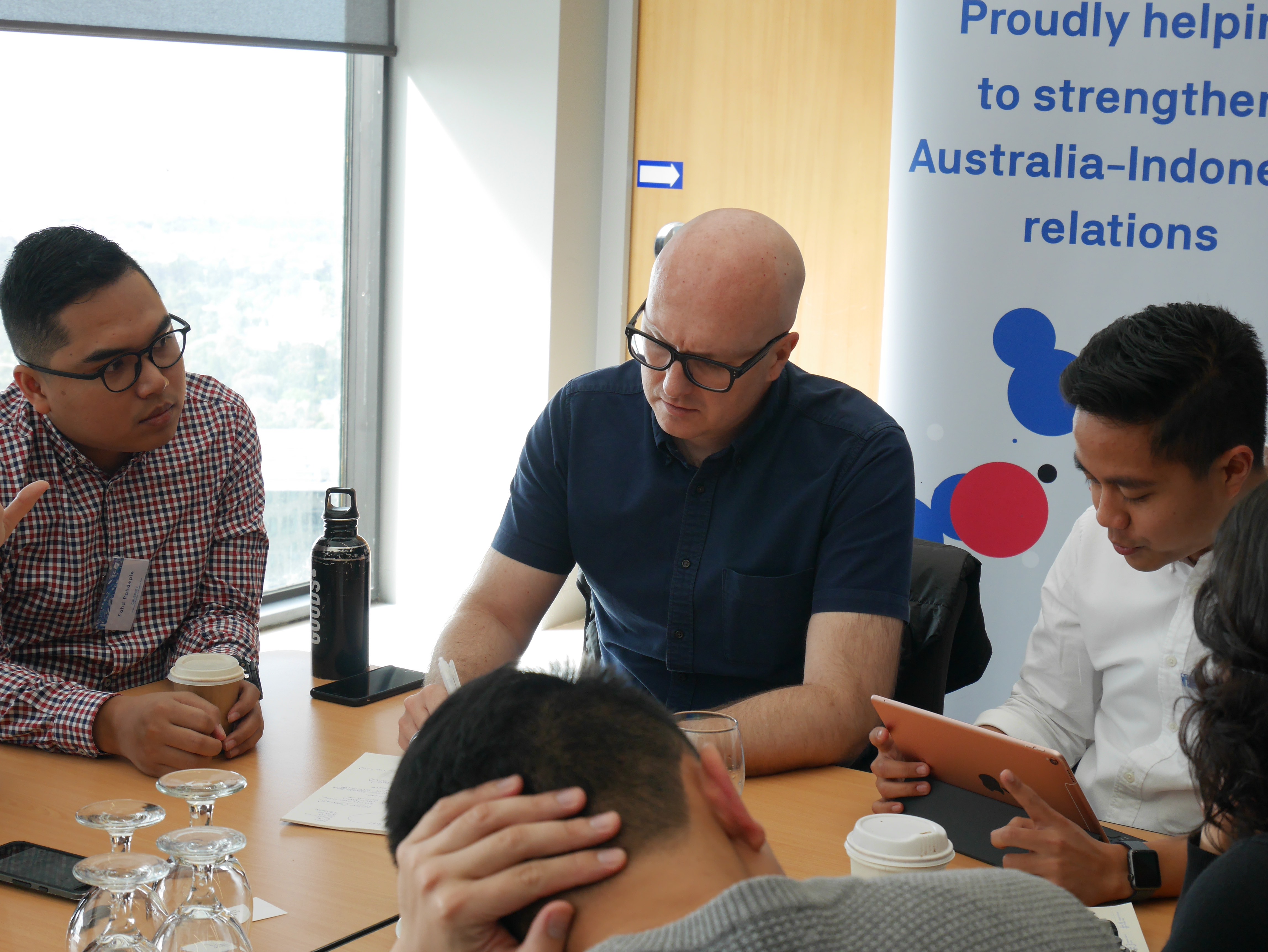
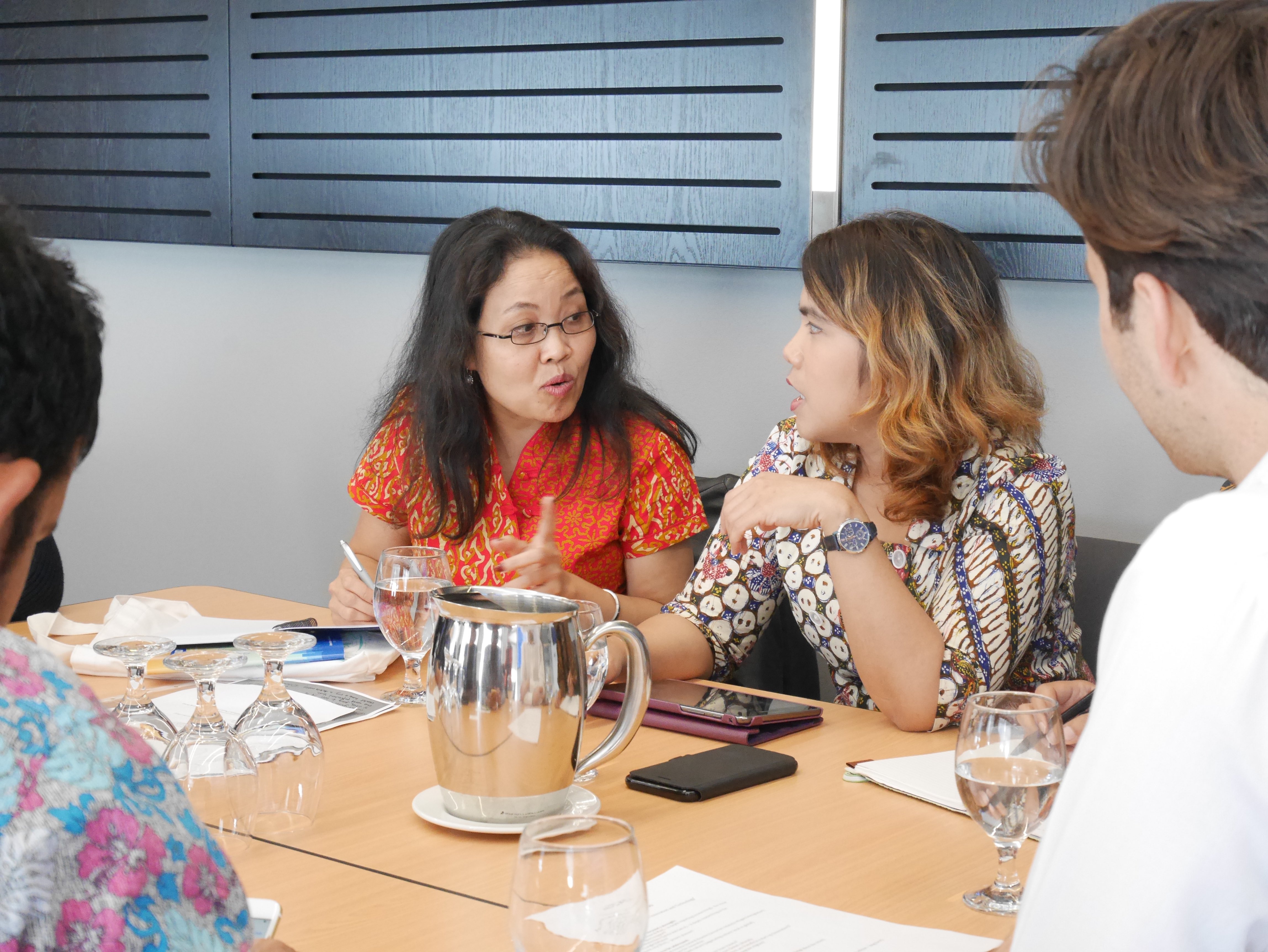

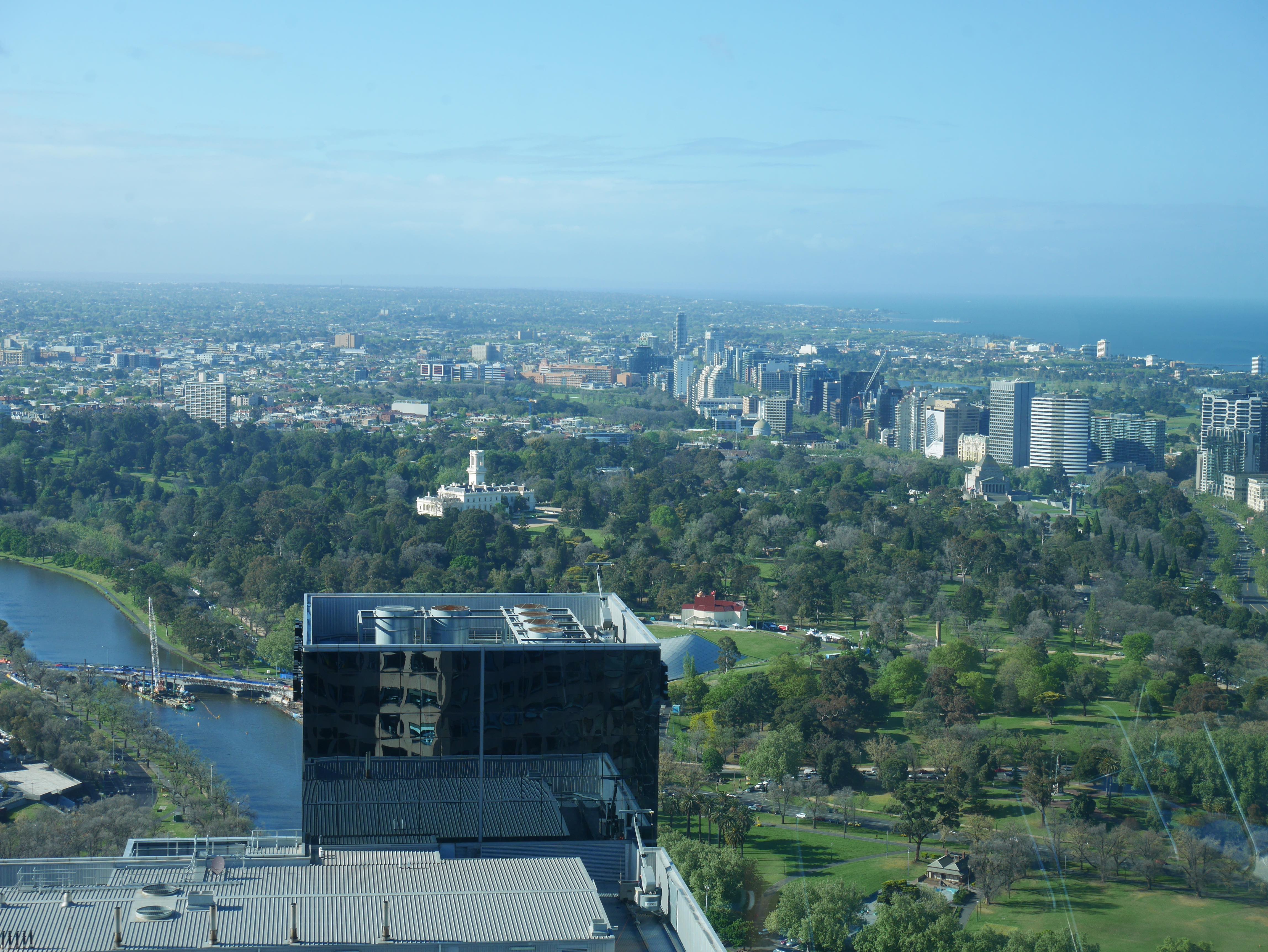
Over the three hours, delegates and their mentors took the first steps in identifying a specific challenge to the relationship and framing a strategy for addressing it throughout the review process.
Just before the lunchbreak, CAUSINDY was privileged to be visited by the Consul-General of Indonesia in Melbourne, Ibu Dewi Wahab. She gave a diplomat’s perspective on the challenges and opportunities of the bilateral relationship, arguing that Australia and Indonesia have a shared interest in the region due to their common democratic character. One of Ibu Dewi’s most memorable quote went up on the Consulate-General’s twitter feed:
“You can contribute to the positive change & maintaining Indonesia-Australia relationship” Ibu @dewiswahab to all @causindy 2017 participant pic.twitter.com/D7g2DkcxR9
— INA Consulate Melb (@KJRIMelbourne) October 12, 2017
The afternoon events were generously hosted by Asialink at the University of Melbourne, and consisted of two in-depth panels: one on politics in the early afternoon and on security in the late afternoon. These sessions allowed delegates to analyse the state of play in these prominent fields of the relationship. The politics panel was moderated by Associate Professor Kate McGregor, a historian of Indonesia at the University of Melbourne. The speakers were the Herb Feith Professor of the Study of Indonesian at Monash University, Professor Ariel Heryanto, senior ABC journalist Patricia Karvelas and Senior Research Fellow at the University of Melbourne’s Asia Institute, Dr. Dave McRae. The panel was conducted under Chatham House rules, which means that the content discussed isn’t made public, so that the discussions remain frank. The talk to circled around the bilateral relationship, but included in their scope issues of governance, culture and identity, complex roles of media, and religion.
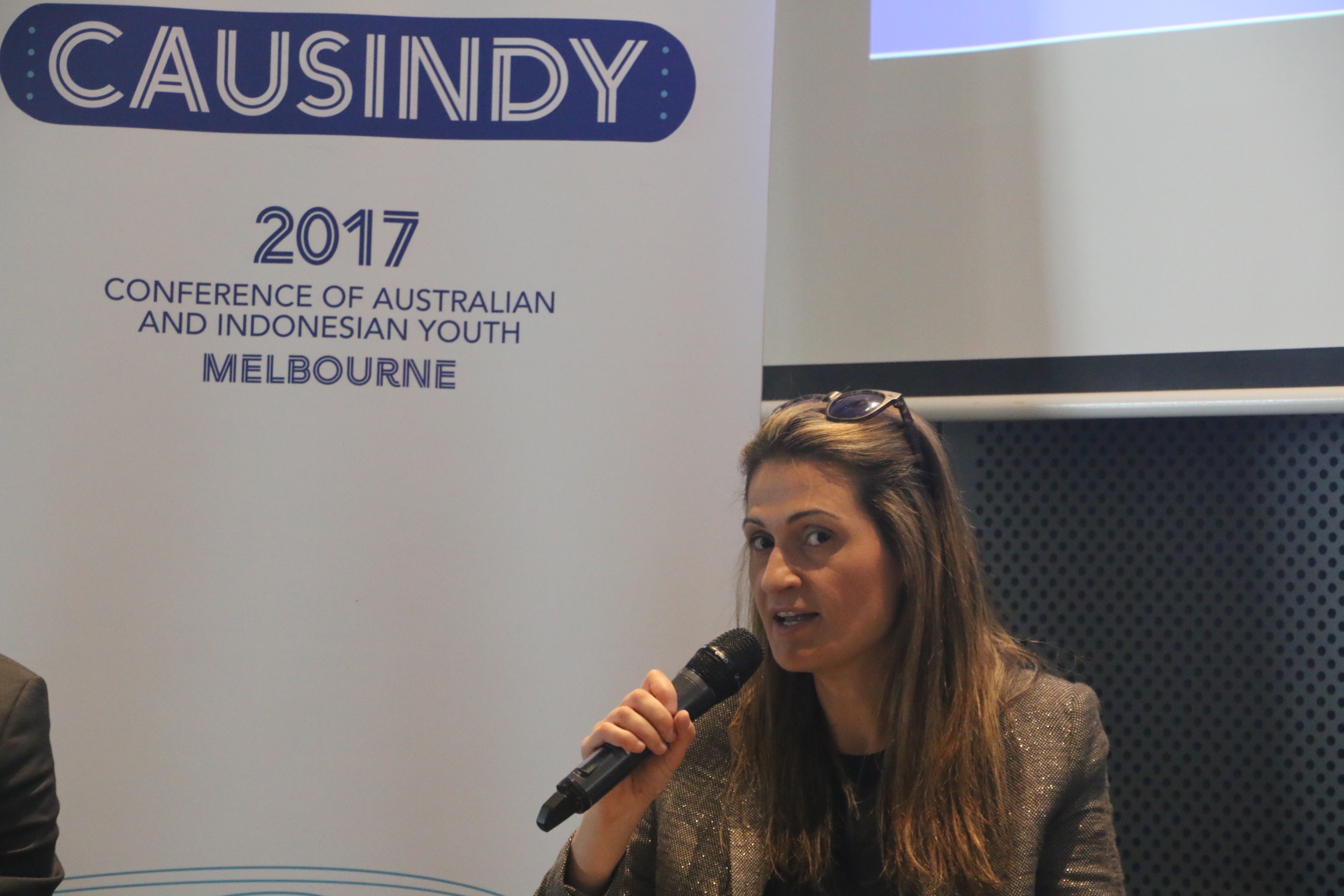
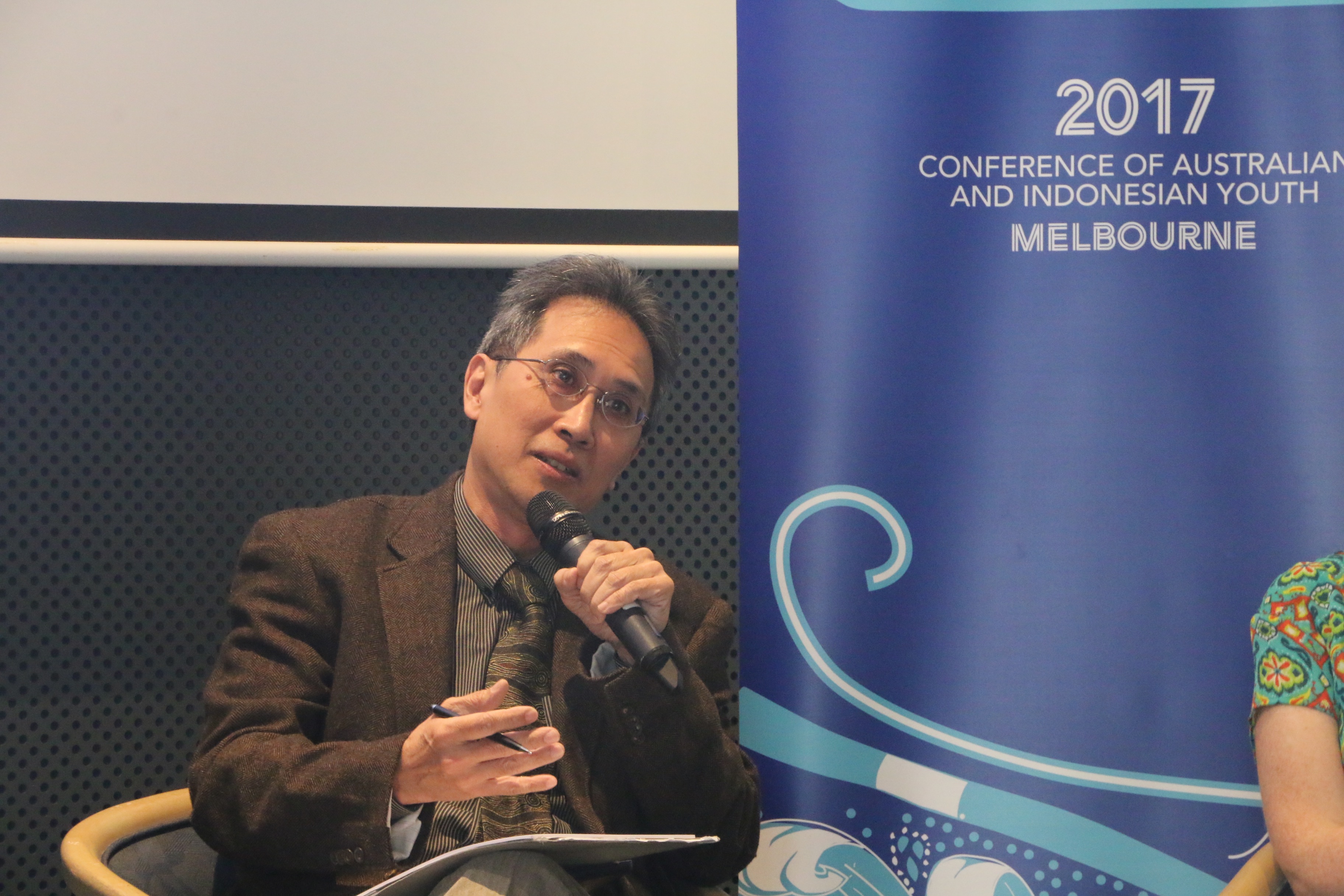
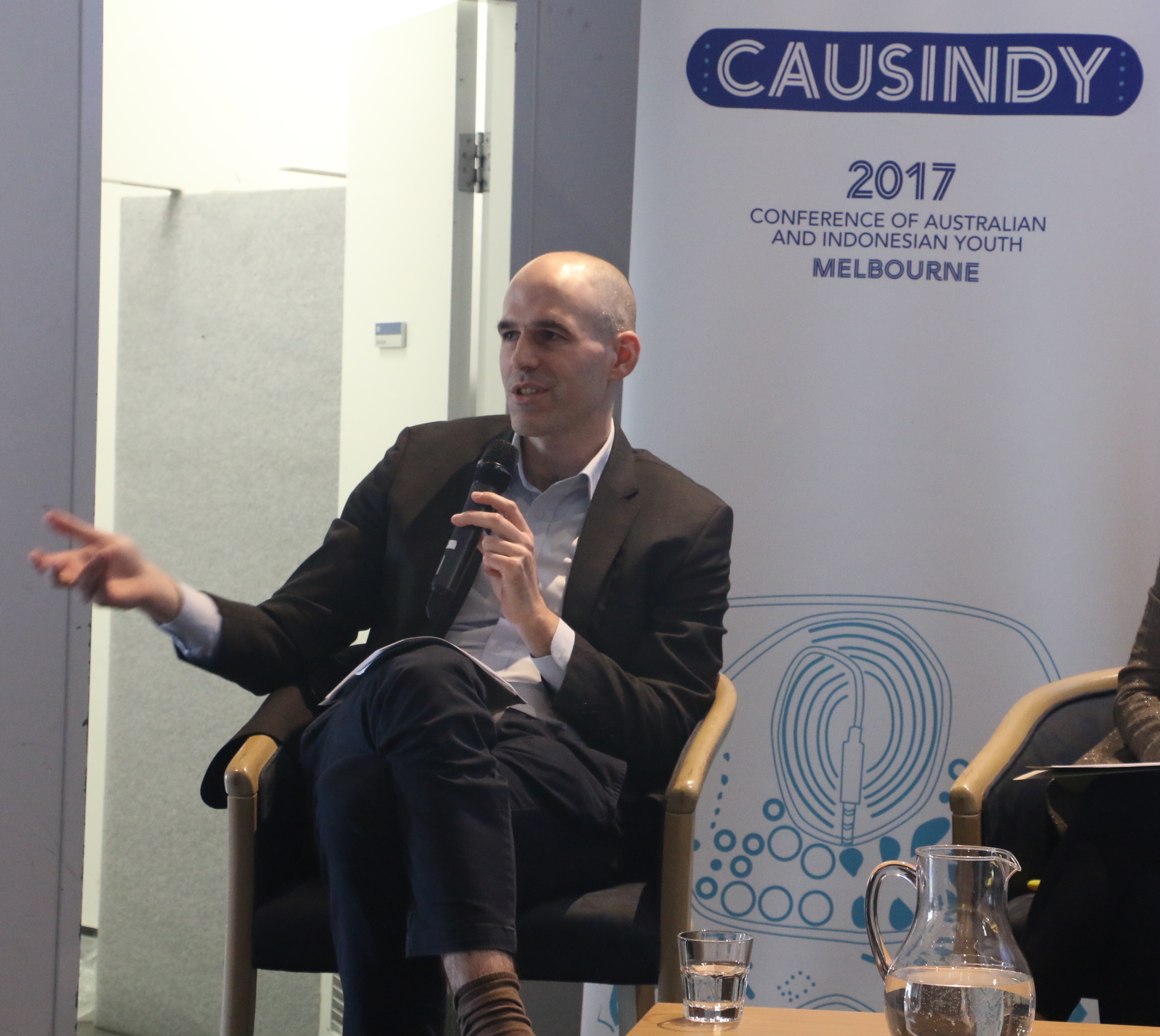
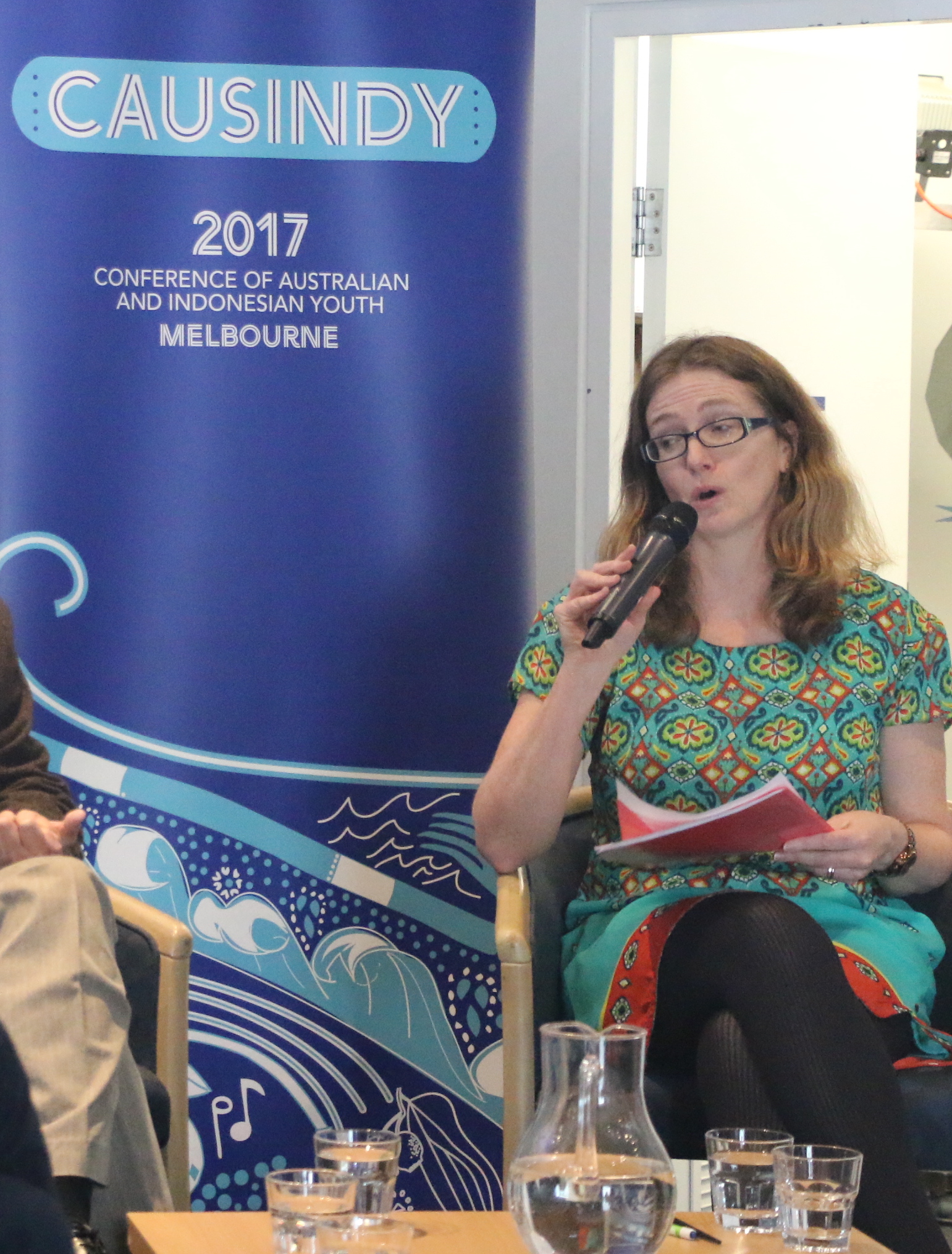
The second panel dealt with defence and security. Moderated by The Lowy Institute‘s Aaron Connelly, the panel featured experts Dr Greta Nabbs-Keller of the International Development Unit (UQID) at The University of Queensland – UQ and Dr Philips Vermonte of CSIS | Center for Strategic & International Studies. This panel session got into the nitty-gritty of the intersections between geopolitics, economics, security studies and diplomacy. Delegates asked detailed questions about the major controversies of the region’s security situation and gained some revealing insights from the panel members. A serious but highly fruitful discussion as delegates pondered how the two countries can navigate the complexities of the military, political and strategic relationship into the future.
Here are some choice quotes from the session:
Dr Nabbs-Keller: “ASEAN is weak without strong Indonesian leadership”
— CAUSINDY (@causindy) October 12, 2017
On deradicalisation, @ConnellyAL throws in an amazing stat: as many Australians went to fight for Jabhat al-Nusra/IS as Indonesians
— CAUSINDY (@causindy) October 12, 2017
Dr Vermonte discussing reading Clifford Geertz’s work of 1959, containing anecdotes about religious identity that seem eerily familiar today
— CAUSINDY (@causindy) October 12, 2017
After a quick freshen-up, the day ended with a business networking event and debate, hosted by CAUSINDY 2017 sponsor Denton Corker Marshall at their Collins Street offices. The major focus of this event was building networks between delegates past and present, so several locally-based CAUSINDY alumni were invited to meet this year’s crop. Now in its fifth year, CAUSINDY thrives not only on the experiences of the 4-day conference, but the lasting relationships that develop between delegates within and across different cohorts.
This was followed by a business debate between CAUSINDY sponsor Corrs Chambers Westgarth CEO John Denton and Kejora Ventures’ Managing Director Andy Zain, moderated by Helen Brown. The debate started with some provocations: Denton suggesting that the fundamentals of the bilateral relationship might not be so solid, and Zain argued that every risk of doing business in Indonesia can be an opportunity. The debate meandered though all manner of topics to do with the economic and financial landscape. But perhaps the most valuable experiences for the delegates were the discussions that ensued over fresh veggies and canapé, a chance for them to speak one on one with these top business leaders and think about the challenges and opportunities for the future!
